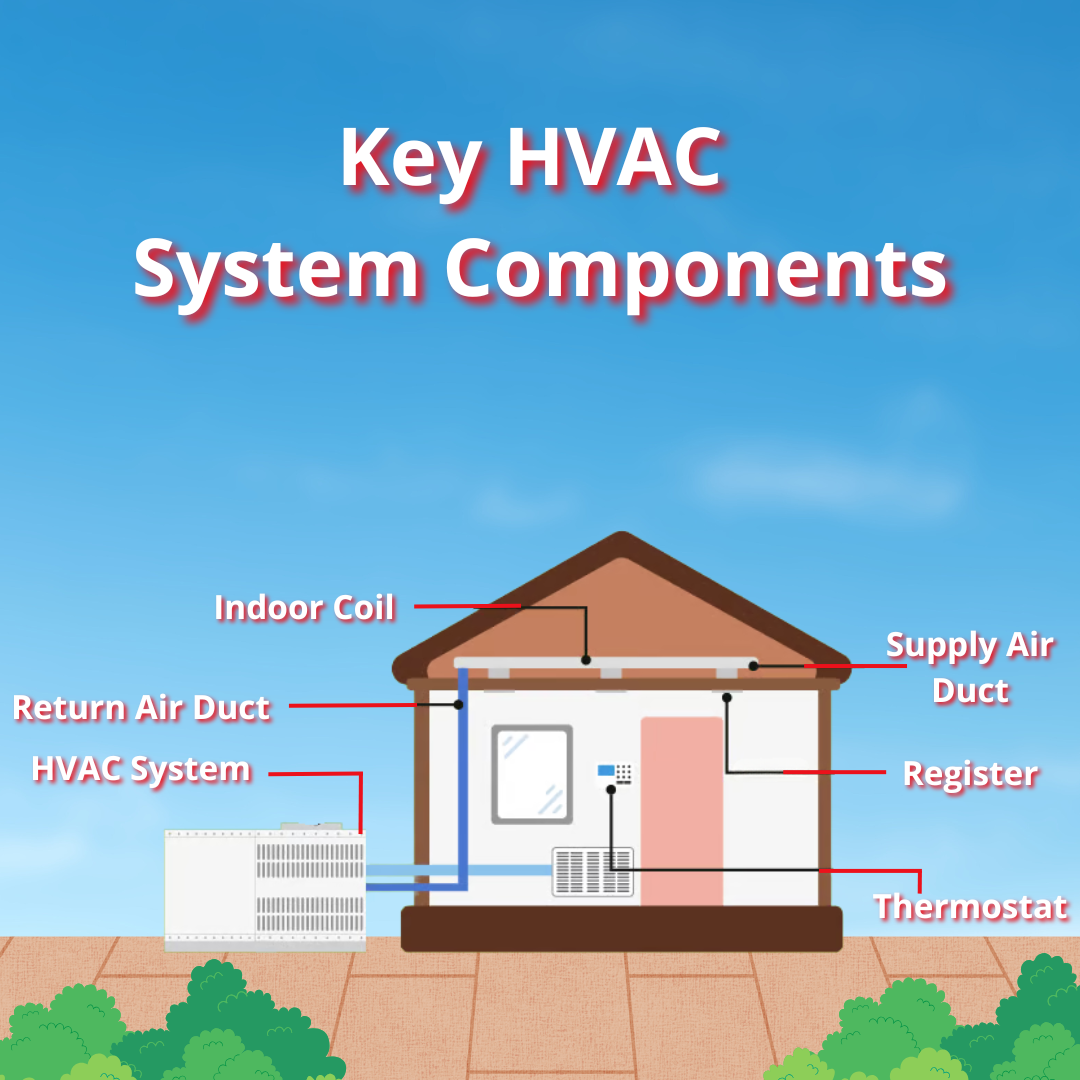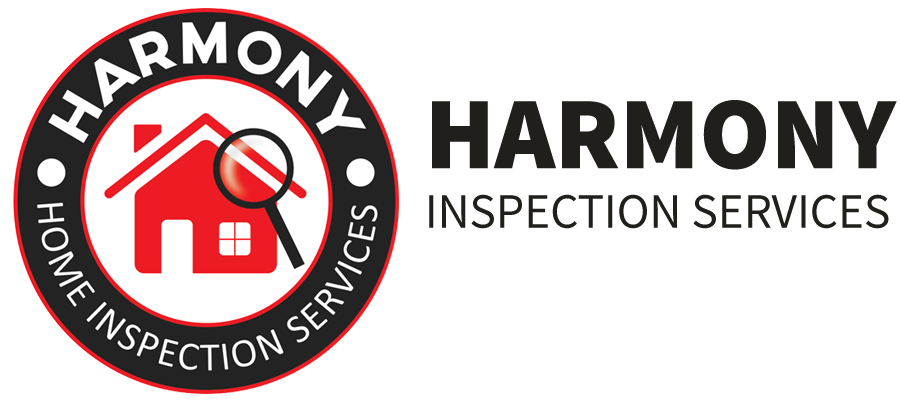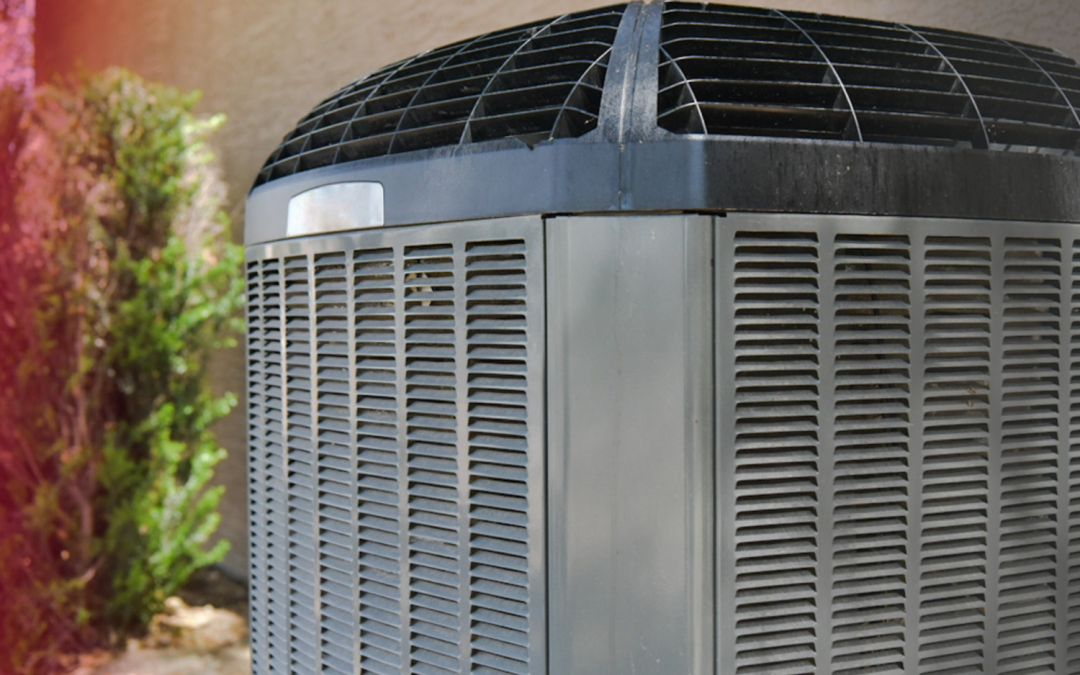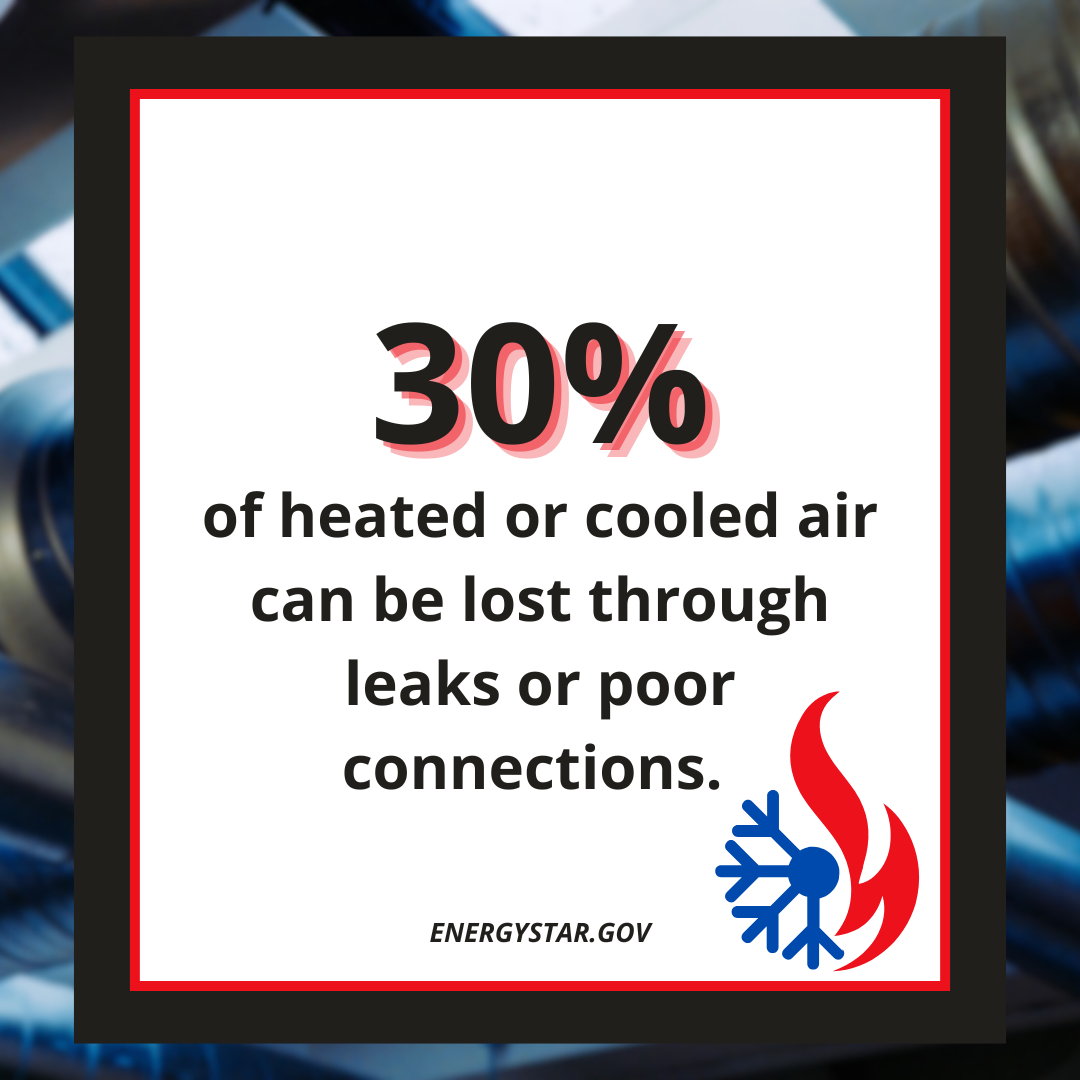When buying a home, it is easy to get caught up in the excitement of finding the perfect place. You look at the kitchen, the size of the backyard, or how much natural light fills the living room. But one of the most important systems in any home is something you cannot easily see: the HVAC system components.
Your HVAC system is responsible for heating, cooling, and circulating air throughout your home. It keeps you comfortable in every season and plays a huge role in your home’s air quality and energy costs. If it is not working properly, repairs can be expensive, and your comfort can quickly disappear.
That is why getting your HVAC system inspected before buying a home is so important. A professional inspection from Harmony Inspection Services helps you understand the true condition of your heating and cooling system, so you can make an informed decision before closing.
What Makes Up an HVAC System?
An HVAC system is made up of several connected parts that work together to heat and cool your home efficiently. Each component plays a unique role, and when one fails, the entire system can be affected.
Here are the main HVAC system components every buyer should understand:
- Furnace or Heat Pump: The source of warm air during cold weather.
- Air Conditioner or Condenser Unit: Removes heat and cools the air inside your home.
- Ductwork: A network of metal or flexible tubes that carries heated or cooled air to each room.
- Thermostat: The control center that allows you to set and adjust the temperature.
- Air Filters and Vents: Keep the air clean and maintain proper airflow.
These parts work together as a team. The thermostat signals the furnace or AC to turn on, the air moves through the ducts, and vents distribute it evenly. If one part is damaged, efficiency drops, and the system works harder to maintain comfort.
Pro Tip: When touring a home, listen for unusual noises or feel for uneven airflow in rooms. These small signs can hint at deeper HVAC problems.

How Common Are HVAC Problems in Homes?
HVAC issues are among the most frequent findings during home inspections. According to the U.S. Department of Energy, heating and cooling use about 50 percent of the energy in a typical home. When HVAC systems are poorly maintained, they waste energy and money.
The National Association of Realtors reports that HVAC systems are one of the eight most common home inspection issues. Common findings include:
|
Common Issue |
Description |
Likely Cause |
|
Dirty Coils |
Reduces cooling and efficiency |
Lack of maintenance |
|
Refrigerant Leaks |
Less cooling power and system strain |
Cracked or corroded lines |
|
Clogged Filters |
Restricts airflow and raises energy costs |
Filters are not changed often |
|
Faulty Thermostats |
Uneven temperatures |
Wiring or calibration issues |
|
Aging Systems |
Frequent repairs and poor performance |
15–20 years of wear |
These problems often start small and worsen over time. A dirty coil might begin as a simple cleaning issue, but can lead to a frozen compressor if ignored. Similarly, a clogged air filter might seem minor, but it can shorten the lifespan of your blower motor.
Why this matters for buyers: If your inspector finds multiple HVAC concerns, you can use that information to negotiate repairs or a lower price before closing.
Furnace and Heat Exchanger
The furnace is one of the most critical HVAC system components. It produces warm air in winter, while the heat exchanger transfers that heat safely into your duct system. If this part is damaged, it can release dangerous gases such as carbon monoxide.
During an inspection, professionals look for:
- Cracks or corrosion on the heat exchanger can lead to gas leaks.
- Rust or soot buildup that indicates poor combustion.
- Dirty burners or filters that reduce efficiency.
- Ventilation issues that cause improper airflow or backdrafting.
A typical furnace lasts between 15 and 20 years. However, systems that have not been regularly cleaned or serviced often fail much sooner. Buyers should ask sellers for maintenance records to understand how well the system has been cared for.
Inspection tip: A visual inspection can reveal rust, dirt, or water stains around the furnace base. These are signs of potential problems that should be addressed before purchase.
Air Conditioner and Condenser Unit
Your air conditioner and outdoor condenser work together to keep your home cool. The condenser unit removes heat from the refrigerant, while the evaporator coil absorbs heat from inside your home.
Home inspectors will check for:
- Refrigerant leaks that reduce cooling ability.
- Bent fins or damaged coils that restrict airflow.
- Dirty condensers caused by leaves or debris.
- Worn fan motors or unusual noises from the compressor.
- Visible corrosion or oil spots that suggest leaks.
Most air conditioners last 10 to 15 years, but their lifespan depends on climate and maintenance. In hotter areas, systems tend to wear out faster due to heavy use.
Buyers should also ask about the SEER rating (Seasonal Energy Efficiency Ratio). Modern units with higher SEER ratings use less electricity, saving money each month.
Quick Tip: If the outdoor unit looks old or rusted, it may be near the end of its life. Replacement costs can range from $1,300 to $6,100, depending on system size.
Ductwork and Airflow
Ductwork is one of the most overlooked HVAC system components, yet it plays a major role in efficiency and comfort. Even if your furnace and AC are in perfect condition, leaky or poorly sealed ducts can waste significant energy.
According to the Energy Star, up to 30 percent of heated or cooled air can be lost through leaks or poor connections. That wasted air means higher energy bills and uneven temperatures from room to room.
During an inspection, professionals check for:
- Loose or disconnected joints where air escapes.
- Poor insulation in attics or crawlspaces.
- Dust or mold buildup that affects air quality.
- Unbalanced airflow that causes some rooms to feel hotter or colder.
Repairing duct leaks can improve comfort and reduce energy costs by hundreds of dollars per year.
Pro Tip: Shine a flashlight on visible ducts in basements or attics. Look for gaps, tape peeling away, or dark dust marks near joints. These are signs of leaks that should be sealed.
Thermostat and Controls
The thermostat acts as the brain of your HVAC system. It tells your system when to turn on, when to turn off, and what temperature to maintain.
Inspectors check for:
- Proper wiring and secure connections.
- Accurate temperature readings compared to room air.
- Ease of control and responsiveness when adjusted.
- Signs of age, wear, or outdated technology.
If the thermostat is not calibrated correctly, it can make your system run longer than needed, which increases your energy bill.
Modern smart thermostats can automatically adjust temperatures based on your habits.
Tip for buyers: If you see a programmable thermostat, check whether it connects to Wi-Fi. Remote control and scheduling features make it easier to manage comfort and efficiency.
Air Filters and Vents
While small, air filters and vents play a vital role in your HVAC system’s health. They trap dust, allergens, and debris, keeping your indoor air clean and protecting your equipment.
Inspectors commonly find:
- Filters that are clogged with dust or pet hair.
- Missing filters that allow debris to enter the blower motor.
- Vents that are blocked by furniture or rugs.
- Registers that have been painted shut.
Neglecting filter changes can cause your system to work harder, leading to overheating and possible system failure. Filters should typically be replaced every 1 to 3 months, depending on household conditions.
Quick Tip: Hold your filter up to the light. If you can’t see through it, it’s time to replace it.
When to Schedule a Professional HVAC Inspection
Even if a home appears to have a working HVAC system, a full professional inspection is still important before finalizing your purchase. A certified inspector from Harmony Inspection Services will evaluate each HVAC system component carefully.
A professional HVAC inspection typically includes:
- Checking airflow balance and temperature differences between rooms.
- Testing the heating and cooling systems for proper function.
- Examining ductwork for leaks, damage, or poor insulation.
- Reviewing electrical connections, safety switches, and circuit integrity.
- Inspecting visible components for rust, corrosion, or water stains.
- Reporting the system’s age and expected remaining lifespan.
This inspection can uncover hidden issues like improper installation, blocked flues, or worn belts that could lead to future breakdowns. Identifying these early can help you plan for maintenance or negotiate repairs with the seller.
Related Questions
How long do HVAC systems last?
Most systems last between 15 and 25 years, depending on usage, maintenance, and climate. Heating systems usually last longer than cooling systems, but both can fail early if neglected. The sooner they are replaced, the better.
What is the average cost to replace an HVAC system?
The cost can range from $5,000 to $12,000 depending on the system size, brand, and manual installation requirements. Ductwork replacement can add extra costs if needed.
Can home inspectors test HVAC systems in winter?
Yes, but there are limits. Cooling functions are not typically tested when temperatures are below 65°F to avoid damaging the compressor. Inspectors will, however, still check for visible issues, musty smells, age, and general condition.
How can homeowners maintain their HVAC system year-round?
Change air filters regularly, clean around outdoor units, and schedule seasonal tune-ups with a licensed HVAC technician or home inspector. Keeping the system maintained ensures better performance and longer life.
Conclusion
Understanding the key HVAC system components before buying a home can save you from future headaches and costly repairs. Each part, from the furnace to the thermostat, plays a role in keeping your home safe, efficient, and comfortable.
At Harmony Inspection Services, we believe every homebuyer deserves peace of mind. Our detailed inspections help you identify HVAC issues early so you can make informed decisions with confidence.
Before you close on your dream home, schedule a professional home inspection with Harmony Inspection Services. We will help you ensure your new home’s HVAC system is in top condition for years of comfort ahead.


